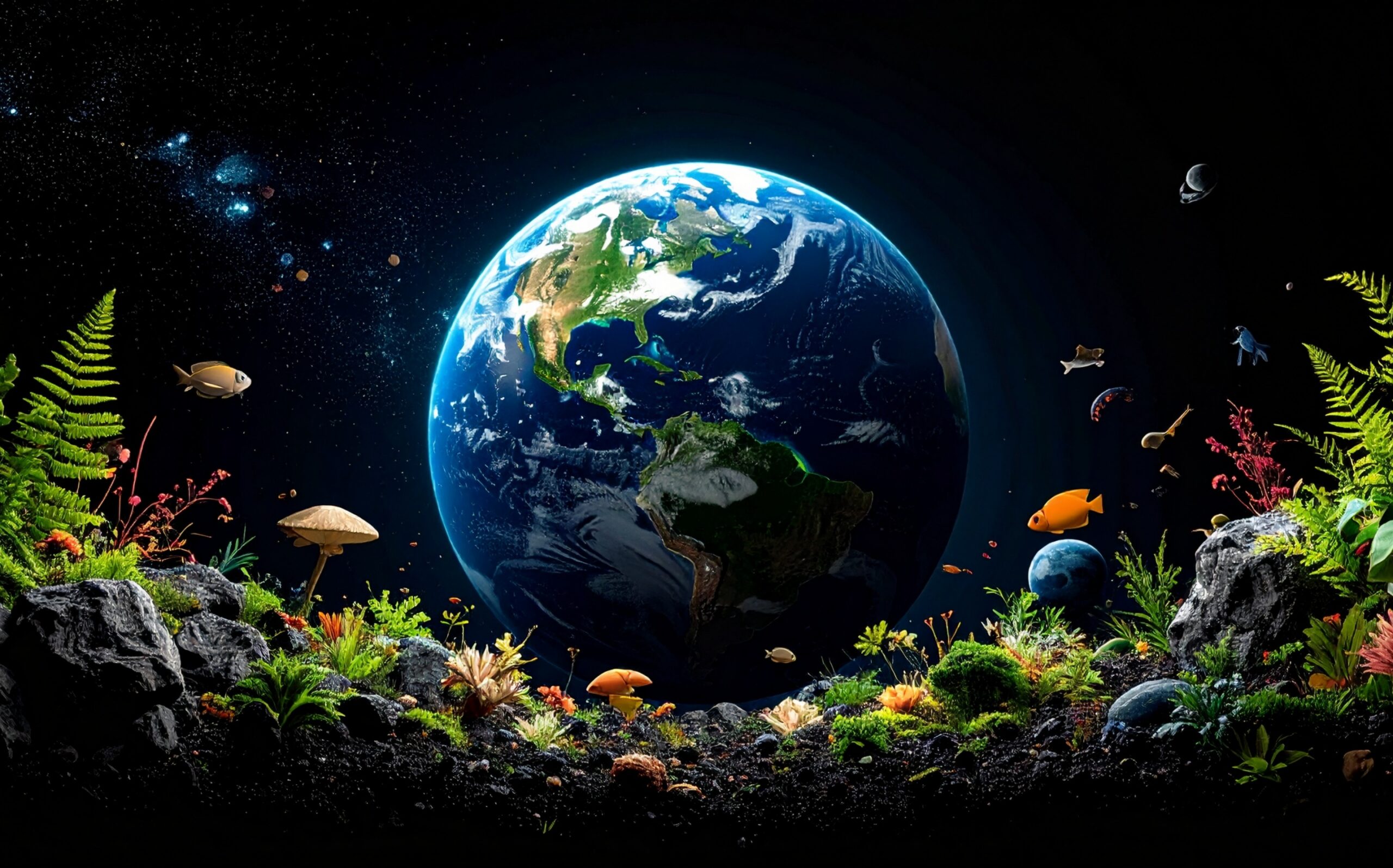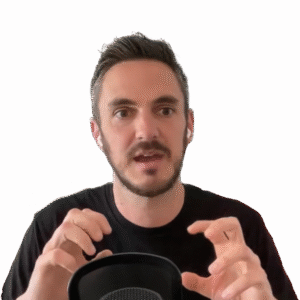
Ep 177 | Thomas Crowther
Thomas Crowther — No Economies Without Biodiversity: Why Our Markets Rely on the Complexity of Nature
Description
There is only one known planet in the universe capable of meeting humanity’s needs – Earth. And yet, our understanding and appreciation of the underlying complexity that makes it function remains limited. If we were able to grasp the transformative potential of biodiversity – specifically how it relates to biocomplexity – how might we change our behavior?
In this episode, Nate is joined by ecologist Thomas Crowther to discuss the critical importance of biodiversity as an intricate web of life that supports all other living beings, not just through the sheer number of species, but because of the complexity of interactions within ecosystems. Thomas highlights the power of data in empowering individuals to make informed choices that positively impact nature, and the critical need to address inequality in order to foster ecological recovery.
Could the power of data and knowledge catalyze humanity into valuing biodiversity for the sake of preserving ecological stability? How do local communities and initiatives play a key role in revitalizing productive ecosystems, and how can we change our patterns of consumption to better support them? And perhaps most importantly, if we come to understand the critical interconnectedness of the biosphere, might we finally rediscover our place within it, as one species among millions fostering life on this Blue-Green Earth?
About Thomas Crowther
Thomas Crowther is an ecologist studying the connections between biodiversity and climate change. He is chair of the advisory council for the United Nations Decade on Ecosystem Restoration, as well as the founder of Restor: an online, open-data platform for the global restoration movement. He was also a professor in the Department of Environmental Systems Science at ETH Zurich, where he started Crowther Lab, an interdisciplinary group of scientists exploring how global-scale ecological systems interact to regulate the climate. In 2021, the World Economic Forum named Thomas a Young Global Leader for his work on the protection and restoration of biodiversity.
In French, we have a motto that says that a simple drawing is often better than a long explanation. Jean-Marc Jancovici Carbone 4 President
That’s very understandable because with left atmosphere thinking, one of the problems is that you see everything as a series of problems that must have solutions. Iain McGilchrist Neuroscientist and Philosopher
We can’t have hundreds and hundreds of real relationships that are healthy because that requires time and effort and full attention and awareness of being in real relationship and conversation with the other human. Nate Hagens Director of ISEOF
This is the crux of the whole problem. Individual parts of nature are more valuable than the biocomplexity of nature. Thomas Crowther Founder Restor
Show Notes & Links to Learn More
Download transcript00:00 – Thomas Crowther
02:48 – Biodiversity, Food Webs (Web of Life)
03:31 – David Attenborough, Attenborough’s filmography
03:33 – Mycorrhizal fungi facilitating plant life, Whales and Remora fish
03:46 – The importance of Antagonistic relationships in ecology, Grey wolf and White-tailed deer relationship, Canada lynx and Snowshoe hares
04:33 – Stress Gradient Hypothesis
04:53 – Tree of Life, Ecological Feedback Loops
05:08 – Great Oxidation Event
05:23 – Relationship between biodiversity, competition, and stability
05:33 – Fungi species competition study
06:08 – Intransitive dynamics in Ecology
06:43 – Nate’s fossil: Stromatolites fossilized in iron
08:23 – Deforestation and Biodiversity Loss
09:01 – David Sloan Wilson (TGS Episode) & E.O. Wilson paper on Selfishness and Altruism
09:50 – The Selfish Gene
10:34 – Mutualism vs. Symbiosis
11:43 – Lotka–Volterra equations, Quantitative Ecology
12:38 – Biodiversity Hotspots
13:33 – The global economy is at risk because of biodiversity loss
13:45 – Sustainable Development Goals, Planetary Boundaries
14:04 – Climate Change
15:14 – Nate’s Reality 101 course, Ants and plant species relationship video
15:56 – Ecological Tipping Point, Domino Effect, Monoculture
16:28 – Biological Redundancy
17:23 – Overfishing, Coral Bleaching
17:36 – Eloy Manuel Castellanos Verdugo – Ecosystem Resilience
18:01 – Human activity is significantly changing ecosystems
19:18 – Wide Boundary thinking, Using a Wide Boundary Lens
19:35 – Spain: Monocultures of Eucalyptus trees
21:20 – Forest systems store a significant amount of carbon
22:20 – Tree Census study
24:16 – Agricultural Revolution
24:38 – Tree Species study
24:50 – Global Tree Restoration study
29:00 – Greenwashing
32:05 – Trump’s one trillion trees Executive Order
33:08 – Tree planting threatening native grasslands
33:25 – Nature is becoming a higher priority in climate negotiations
33:53 – United Nations Decade on Ecosystems Restoration
34:31 – Project SEED Biocomplexity – SEED Index
35:10 – Biocomplexity
37:28 – Wealth Inequality, Economic Inequality Visualizations
39:13 – RESTOR
44:23 – Desta’s Coffee
47:54 – Higher profits when Nature is in tact
48:26 – Payment for Ecosystem Service (PES) Government Program in Costa Rica
49:28 – Soundscape restoration in Costa Rica as a result of PES
50:13 – Economic impact of ecological restoration
51:28 – Kuznets Curve, Criticisms of the model
51:48 – Inequality as a driver of environmental degradation (and greed)
52:56 – The Bottlenecks of the 21st Century by Nate Hagens and DJ White
53:13 – Carrying Capacity
53:53 – Fish populations could recover in a decade
54:30 – Chernobyl ecosystem regeneration
55:03 – Argentina reintroduction of jaguar, Yellowstone reintroduction of wolves
56:08 – Farmer Mediated Natural Regeneration (FMNR) Movement
56:22 – Desertification, Soil degradation in Africa
57:23 – We are on the verge of a 6th Mass Extinction
1:00:33 – Wildcrafting, Bushcraft
1:01:23 – Friction fire
1:08:18 – Debt relief, Cash transfer programs, Payment for ecosystems services, UBI
1:09:34 – EU Nature Restoration Regulation, Farmers’ Protest, Biodiversity matters in agriculture







